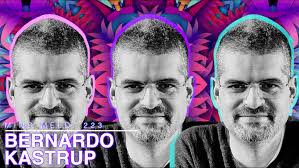
The Polish astronomer Nikolaus Copernicus is remembered as one of the greatest scientists of all time. The publication of his On the Revolutions of the Celestial Spheres declared, in contradiction to the assertions of the authorities of the day, that the Earth and the other planets revolved around the Sun. This heliocentric theory caused such a change in thought that it was later dubbed the Copernican Revolution.
Up until Copernicus, Western astronomers had followed what was called the Ptolemaic model. Otherwise known as geocentrism, this model asserts that the Sun revolves around the Earth. The Ptolemaic model accorded with the religious dogma of the day – that the Earth was the centre of the Universe – but had trouble accounting for some of the observed phenomena. This led to an ever-more complicated set of apologetics involving epicycles and other distractions.
Copernicus, however, was not the first person, or even the first Westerner, to realise that the Earth rotated around the Sun. The ancient Greek philosopher Aristarchus figured it out 2,300 years ago, only for this knowledge to be mostly lost when Christians destroyed Western Europe at the onset of the Dark Ages.
Heliocentrism was, for many centuries, an occult secret, one that could not be spoken openly for fear of persecution by religious fanatics. Giordano Bruno was burnt at the stake for promulgating the theory, and Galilei Galileo was put under house arrest for the same. Contradicting the Church, when the Church claims to speak for God, is blasphemy.
That the Sun is the center of the Solar System was not the only thing forgotten by the Christian Dark Ages.

Bernardo Kastrup is a Dutch philosopher and computer scientist who has risen to prominence recently for his theory of metaphysical idealism. Kastrup’s theory of reality is summarised in his second Ph.D thesis, where he writes: “there is only cosmic consciousness.”
Kastrup’s theory is detailed, but to summarise crudely, he asserts that consciousness is the prima materia, and all other phenomena arise from consciousness. Many have made similar assertions, but Kastrup’s brilliance lies in his ability to systemically and concisely refute the assertions of materialists. Kastrup’s philosophy has shown that materialism makes no sense.
Much like the truth of heliocentrism, it was also known to the ancients that consciousness is the prima materia. This is a truth expressed by the First Hermetic Principle, otherwise known as the Principle of Mentalism, which states simply: “All is Mind”. It is also expressed in the Bhagavad Gita, in passages such as “never have you existed not”.
It was, more particularly, a truth known to all the initiates of the Eleusinian Mysteries. They understood that, as Persephone entered into Hades and then returned to the world above, so too has the consciousness of each one of us entered into the Hades of the material world, only for it to inevitably return again to the world above after the death of our physical bodies.
The true spiritual and intellectual elite of the world have always known that the Earth revolved around the Sun – it was just impossible to say this because it contradicted the dogma of the authorities of the day. Copernicus’s genius was that he was able to describe the truth in a logical and mathematical manner that could not be denied.
The true spiritual and intellectual elite of the world have also always known that consciousness is the prima materia. It has also been impossible to say this because it has also contradicted the dogma of the authorities of the day. Bernardo Kastrup has likewise described the truth about the primacy of consciousness in a way that is hard to argue against.
Ultimately, Copernicus’s gift to the world was to remind us that the darkness of Earth was not the prime reality, but rather the light of the Sun. Kastrup’s gift might be similar, in that he has reminded us that the darkness of the material is not the prime reality, but rather the light of consciousness.
*
If you enjoyed reading this essay/article, you can get a compilation of the Best VJMP Essays and Articles of 2019 from Amazon for Kindle or Amazon for CreateSpace (for international readers), or TradeMe (for Kiwis). A compilation of the Best VJMP Essays and Articles of 2018 and the Best VJMP Essays and Articles of 2017 are also available.
*
If you would like to support our work in other ways, please consider subscribing to our SubscribeStar fund. Even better, buy any one of our books!
